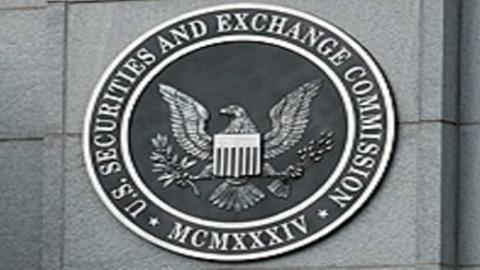
Similar Posts

Zumo Unveils MiCA Readiness Report at Davos: Key Insights for Crypto Compliance
At the World Economic Forum in Davos, a report highlighted sustainability challenges in crypto-assets, particularly regarding compliance with the MiCA regulation. While 75% of respondents were familiar with MiCA, only a third felt informed about sustainability disclosure requirements. Key challenges included unclear regulatory guidelines (50%), lack of resources (38%), and information scarcity (31%). Peter Kerstens from the European Commission emphasized the importance of sustainability in crypto, urging providers to see MiCA as an opportunity. Risks of non-compliance include reputational damage (75%) and loss of customer trust (31%). Experts called for greater regulatory engagement to enhance understanding and support sustainable practices in the industry.

Shift4 Payments and SEC Settle Disclosure Violation: Key Insights and Implications
The SEC’s recent enforcement action against Shift4 has highlighted serious compliance issues regarding financial disclosures. The company failed to adequately report significant compensation to family members of executives in its 2020 filings, violating the Securities Exchange Act of 1934. Specifically, a sibling of an executive received about $1.1 million, while another family member earned $280,000. As a result, Shift4 has agreed to a cease-and-desist order and will pay a $750,000 civil penalty. Meanwhile, CEO Jared Isaacman has been nominated by President Trump to lead NASA, despite the scrutiny surrounding Shift4.

Wise Launches Innovative Hyderabad Hub: A New Era of Opportunity
Wise, the money transfer giant, is expanding its operations in India by launching a new hub in Hyderabad, expected to create hundreds of jobs over the coming years. This hub will focus on recruiting teams for product development, engineering, and customer service, led by Smrithi Ravi, returning from Singapore. Alongside the hub, Wise will introduce an international account for Indian businesses, allowing them to receive payments in multiple currencies and streamline their processes. Meanwhile, Revolut has received authorization from the Reserve Bank of India to issue prepaid payment instruments supporting UPI payments, enhancing the financial landscape for Indian businesses.

Consumer Coalition Urges FCA to Halt Controversial Email Deletion Plans
In an open letter, stakeholders express strong concerns about the FCA’s upcoming email deletion policy, effective April 1. They argue it threatens accountability, impacting Freedom of Information requests, external reviews, and legal proceedings. Critics dispute the FCA’s claim that the policy won’t reduce transparency, highlighting risks of losing important communications needed for inquiries and litigation. Industry experts, including Aleksandra Maczynska and Anthony Stansfeld, stress that discarding emails could jeopardize evidence crucial for accountability. Andy Agathangelou calls for a pause to reassess the policy, warning it could damage the FCA’s regulatory credibility and reputation.

Trump Calls for National Crypto Stockpile Evaluation and Bans CBDC Development
Former President Trump’s recent executive order on digital financial technology emphasizes the importance of the digital asset industry for innovation and economic growth in the U.S. It establishes a specialized working group, including key government officials, tasked with developing regulatory proposals within 180 days. Key focuses include exploring a national digital asset stockpile from seized cryptocurrencies, prohibiting the establishment of Central Bank Digital Currencies (CBDCs), and ensuring cryptocurrency firms have access to banking services. This initiative aims to promote responsible growth in the digital asset sector, enhancing economic development and maintaining the U.S.’s global leadership.

Hawk Secures $56M to Revolutionize AI-Driven Fraud Prevention Solutions
Hawk, a regtech company, has secured significant funding from investors like Macquarie Capital and Rabobank to enhance its AI-driven solutions for anti-money laundering (AML) and fraud detection. By shifting from traditional methods, Hawk improves detection accuracy and reduces false positives, serving over 80 clients, including major banks and fintechs globally. The funding will also support Hawk’s expansion into the U.S. market. CEO Tobias Schweiger emphasizes the company’s commitment to leveraging machine learning for financial crime prevention. Hawk’s expertise and comprehensive support position it as a leading choice for financial institutions navigating the complex regulatory landscape.
